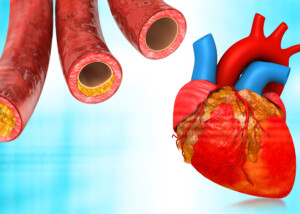If you’re at low risk for heart disease but have a calcium score above zero, just what does this mean for you?
Though the calcium score has been shown to be a strong predictor of the likelihood of heart disease as well as cardiac events, this has applied to people with multiple risk factors already in place for coronary artery disease, such as high blood pressure, poor cholesterol profile, smoking and diabetes.
But what does the calcium score mean for people who apparently have no or a small risk of heart disease?
Los Angeles Biomedical Research Institute (LA BioMed) researchers wanted to find out.
And they found out that the calcium score test, indeed, was accurate in predicting one’s chances of dying from heart disease, even if that person had a small risk, or even zero, known risk factors.
How was this study on calcium scoring done?
LA BioMed researchers investigated 5,593 adults who had no known heart disease risk or who had a minimal risk.
A healthy coronary artery does not contain calcium. But if calcium builds up, it can block an artery.
I’ve had a calcium scoring (a five minute test), and the result was zero.
This means that there was no measurable plaque buildup.
The paperwork that came with my results showed three categories of score values above zero, corresponding to the risk of mild, moderate and severe heart disease.
Now, in the LA BioMed study, it was found that people with calcium scores of one to 99 were actually 50 percent more likely to succumb to heart disease than were those with a zero score.
Those with a moderate score of 100-399 had an 80 percent more likely chance of dying from CAD when compared to those with a zero result. And a score of 400 or more?
These patients were three times more likely to die of heart disease, when compared to those with zero measurable plaque buildup.
“This long-term study builds on previous research conducted at LA BioMed and other institutions,” begins LA BioMed researcher Matthew J. Budoff, MD, “that have proven the effectiveness of coronary artery calcium screening in predicting heart disease risks.”
Dr. Budoff says that his study results show that calcium scoring “can be an effective tool” for evaluating CAD risks in people with little or no known risk factors so they can adjust their lifestyle habits.

Dr. Budoff is at the forefront of the medical community’s efforts to create early detection methods for coronary heart disease.
 Lorra Garrick has been covering medical, fitness and cybersecurity topics for many years, having written thousands of articles for print magazines and websites, including as a ghostwriter. She’s also a former ACE-certified personal trainer.
Lorra Garrick has been covering medical, fitness and cybersecurity topics for many years, having written thousands of articles for print magazines and websites, including as a ghostwriter. She’s also a former ACE-certified personal trainer.
.










































